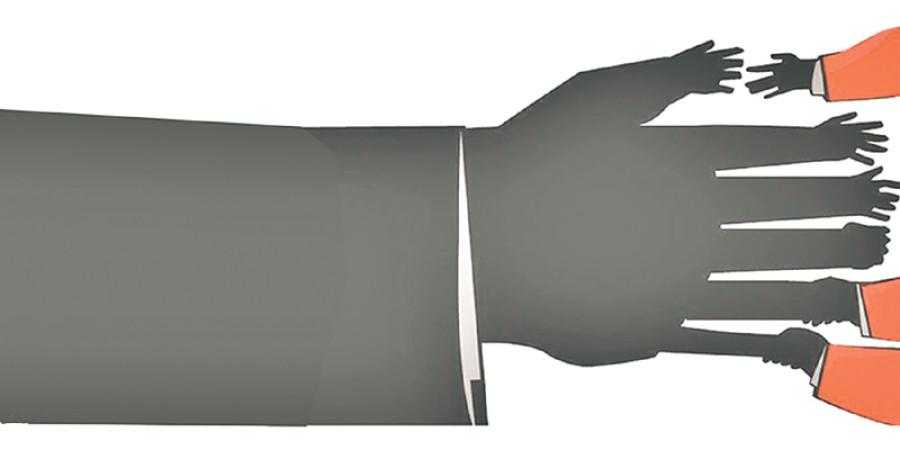Opinion
Defuse the tension
Last month, the Nepali people were confronted by two crucial announcements simultaneously.
Randhir Chaudhary
Last month, the Nepali people were confronted by two crucial announcements simultaneously. One, the government announced the date of the local level elections and, two, the Madhes-based parties declared their opposition to the proposed polls saying that they cannot be held until the constitution is amended. The recent killing of five Madhesis demonstrating against a CPN-UML programme in Saptari has made people angrier.
There is no denying that holding elections to the three tiers of the government is essential to implement the constitution, and time is running out. So the major task of the current administration is to hold elections. If so, why did protests erupt in the Madhes following the declaration of elections, especially at the call of the Samyukta Loktantrik Madhesi Morcha (SLMM)? The SLMM, the so-called national parties are fond of saying, has no influence in the plains. However, the vehemence of the demonstrations belies this claim.
Proportional inclusion
The planned elections are associated with the three-point agreement forged between the government and the agitating Madhes-based parties. One of the three points in the pact is amending the constitution, but little has happened to this end. On top of that, the way in which the government has been acting has aggravated public discontent. When judges were named to the High Court, the Judicial Council paid scant regard to the principles of inclusion and proportional representation. Likewise, the norms of proportional inclusion were thrown out of the window when ambassadorial appointments were made.
It appears that two types of political forces are active in the Madhes. One, a moderate force in which the so-called national parties and the Madhes-based parties are involved. Two, another group which believes in radical politics and secession of the Madhes from Nepal. This second force is trying to cash in on the difference of opinion between Kathmandu and the moderate political forces. The radical force has been courting the youths in the plains by saying that Kathmandu has been constantly giving Madhesis a raw deal. There are no signs that these extremists will succeed in their mission, but it is a fact that they have been able to get a considerable following.
The question is whether the Madhes-based parties will participate in the polls if the constitution is amended. Vijay Kumar Singh, central committee member of the Tarai Madhes Democratic Party, said, “Holding the local election under the central government is an attack on the sentiments of federalism which the Morcha cannot accept.” Holding all three levels of elections—local, provincial and central—by January 20 next year is the only way to end the constitutional deadlock. So what can be done to resolve the crisis and address the grievances of disgruntled sections of the Nepali population?
Whose jurisdiction?
For a start, the constitution should be interpreted honestly. Since we have a federal set-up, the jurisdictions of the central and provincial governments should be clearly defined. Normally, local bodies come under the purview of the provincial government. The problem is that the constitution does not clearly say who should conduct local elections. Regarding provinces and their responsibilities, Article 235 (2) of the constitution says, “The State Assembly may maintain coordination between the State and Village Bodies or Municipalities and settle political disputes, if any, that have arisen, in coordination with the concerned Village Body, Municipality and the District Coordination Committee.” The spirit of this provision is that holding local polls should be the task of the provincial government. So how can the government say that it will hold local polls?
If the federal government gets involved in things that should come under the jurisdiction of local governments, what is the use of having provincial
governments? Therefore, the government’s move to hold local polls is against the spirit of federalism. It would be good to hold state-level elections first and then hold local elections. Towards this end, issues related to state restructuring should be resolved first, and provincial elections should be held before local polls. In order to deal with the current unrest, the government has to withdraw the announcement of the proposed elections. The agitating parties can be brought on board if the government works simultaneously to amend the constitution and hold elections, that is, provincical elections.
Chaudhary holds a Bachelor of Laws degree




 8.12°C Kathmandu
8.12°C Kathmandu










